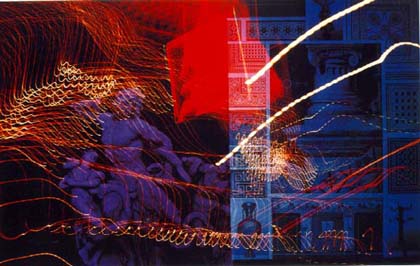 photo by Albert Lung
photo by Albert Lung photo by Albert Lung
photo by Albert Lung
We will discuss the ethical, legal, moral, and aesthetic considerations in fidelity to the original when adapting source material into a screenplay, the degrees of adaptation or verisimilitude to the original, (based on, inspired by), story versus Aristotle’s structure (individual/paradigm of time) versus the Joseph Campbell monomyth (community/paradigm of space), how shifts in dynamics and rhythm affect the time/space continuum of screenplays, recursive text, hybrid tales, tandem/competitive structure, and how much heat/conflict can a particular adaptation take without corrupting the "mood" of the piece. As students write their own adaptations, they will try to keep characters complex and interesting and their dialogue provocative as they move to a different form,
to see how novelistic description is converted into cinematic sequencing that reflects the theme, to determine and strengthen the Central Dramatic Question and the dramatic arc in a complex novel, to decide what to edit out of a novel or to write a short story of the novel, to develop a sense of world in a play that can open up into a screenplay, and
to give a screenplay a unique narrative style.
In addition to watching the films, we will analyze selective writings of Aristotle, Polti, Foucault, Sontag, Seger, Field, Joseph Campbell, Aronson, and do close readings of classic texts such as Oedipus Rex, Medea, Hamlet, Macbeth, Les Miserables, Middlemarch, Frankenstein, Mrs. Dalloway, Ulysses, and The Great Gatsby.
In order to reflect analytically on adaptation as not only a textual process, but also a social and economic one, the students will be asked to think about their own positions as readers, film viewers, interpreters, judges, and consumers, engaged in both critical writing in essay form, and creative writing in Final Draft screenplay format.
Professor Keefer has an e-book Carving Your Story with much of this material.